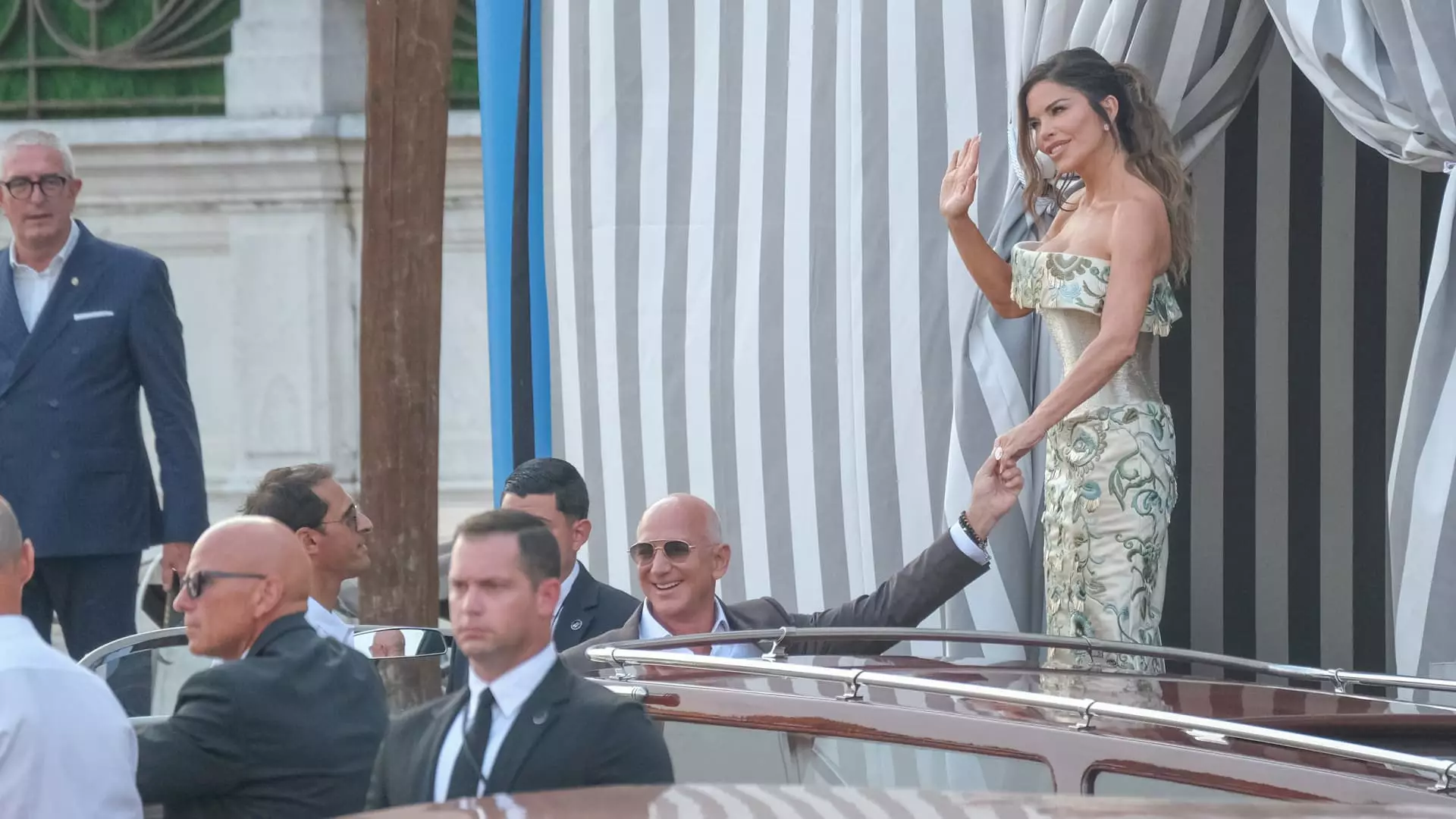Venice, a city synonymous with beauty, history, and cultural heritage, has long grappled with the paradox of welcoming tourists while preserving the fragile ecosystem and authentic spirit of its waterways and narrow alleys. This delicate balance has now been shattered by the ostentatious spectacle that is Jeff Bezos and Lauren Sanchez’s $50 million wedding. The event, described as a “three-day extravaganza” hosting an elite guest list that reads like a who’s who of the global rich and famous, exposes the disturbing gulf between vast wealth and the lived reality of Venice’s residents.
Bezos’s wedding is not merely a private celebration; it is a glaring, almost grotesque public display of some of the world’s most concentrated wealth transposed onto a city already buckling under the pressures of tourism, environmental degradation, and social displacement. The event serves as a symbol of how the ultra-rich continue to appropriate iconic cultural sites for their own enjoyment, indifferent to the long-term consequences on local ecosystems and communities.
The Unbearable Weight of Excess on Venice
It’s worth pausing to consider the sheer scale of this wedding. Estimates of the costs hover around $50 million, a figure that boggles the mind especially when juxtaposed against Venice’s profound struggles. The city, home to roughly 50,000 permanent residents, has seen its population plummet as locals are priced out by rising rents, many of which are directly driven by tourism and luxury developments catering to wealthy visitors.
While Bezos’s donations, such as the 2 million euros pledged to Corila, the research consortium studying the lagoon’s ecosystem, come across as attempts to “give back,” they serve more as symbolic gestures—a drop in the ocean compared to the environmental footprint and social costs incurred by the extravaganza itself. The private jets, superyachts, and helicopter traffic introduced by this floating army of privilege would themselves contribute significantly to pollution and congestion in a city desperately trying to limit such impacts.
A Historic Treasure Exploited — Not Celebrated
The selection of venues also underscores this troubling appropriation of heritage. The Arsenale, a fortified historic complex, was reportedly a last-minute change for security reasons, illustrating how modern security needs for billionaires override the accessibility and preservation of public historic spaces. Meanwhile, side events such as a foam party and Great Gatsby-themed soirée feel disconnected from Venice’s cultural fabric, instead echoing the excesses of corporate elites detached from any authentic engagement with the city’s identity.
This wedding inadvertently spotlights the dangerous trajectory Venice is on—one where cultural landmarks become exclusive playgrounds for the global rich rather than public heritage sites enjoyed by locals and responsible tourists alike. The backlash from Venetians and environmental groups reflects a growing recognition that unchecked luxury tourism and events like this accelerate the degradation and demise of the city’s identity.
The Illusion of Generosity and Responsibility
Despite Bezos’s reputation for philanthropy, this wedding reveals much about how wealth is flaunted without genuine accountability. The notion that a billionaire can transform a UNESCO World Heritage site into a private playground, igniting protests and further alienating local populations, should prompt broader reflections on the responsibilities of the ultra-wealthy.
In reality, these grand events are less about contributing meaningfully to the communities they disrupt and more about reinforcing status and power. The choice of Venice—already burdened by mass tourism and environmental strain—as the backdrop for such an extravagant display indicates a disconnect from, or disregard for, the complex social and ecological realities of the places that power and wealth conquer.
Perpetuating Inequality in a Fragile World
What this wedding ultimately exposes is a pattern: global wealth accumulation often manifests as performative opulence in locations ill-equipped to handle such magnitudes of consumption. Venice’s attempts to institute tourist entry fees and manage the flow of visitors are noble but insufficient responses to systemic inequalities that allow billionaires to enclose and privatize public spaces.
The spectacle of Bezos’s wedding is a cautionary tale of how luxury and global capitalism can overshadow the urgent needs of historical preservation and social equity. While politicians and elites may rub shoulders beneath the Italian sun, Venice’s residents and environment bear the hidden costs—a price that no amount of charity can fully offset.

